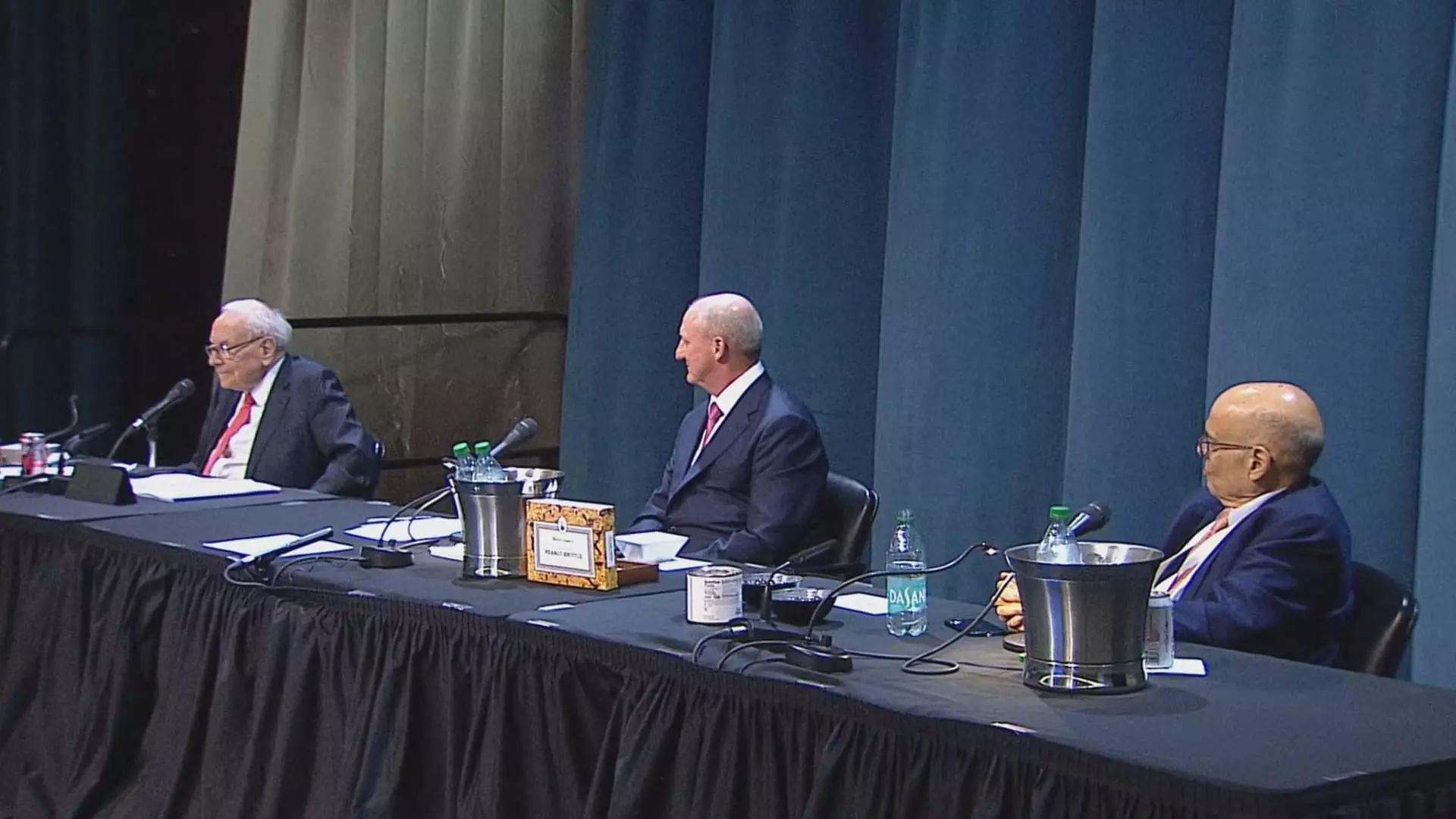As Warren Buffett, the venerated CEO of Berkshire Hathaway, prepares to take a step back from the spotlight by the end of 2025, there’s an air of melancholy intertwined with celebration. His impact on the investment world is akin to that of a grandmaster leaving behind an enduring legacy after decades of teaching. As he nears 95, thoughts of what the future will hold for Berkshire sans its charismatic leader permeate the financial landscape. Known colloquially as the “Oracle of Omaha,” Buffett has captivated countless investors with insights delivered during the firm’s annual meetings, often dubbed the “Woodstock for Capitalists.” Looking back, these meetings have not only been a platform for investment wisdom but a rich tapestry of life lessons that resonate well beyond the stock market.
Buffett’s View on Real Estate: A Practical Approach
One of the more contentious points Buffett made in recent discussions is the inherent complexities of real estate investing compared to equities. His candid admission that he finds real estate much less appealing than stocks isn’t merely a personal preference; it’s rooted in his belief in efficiency and accessibility. He emphasizes how the stock market allows for instantaneous transactions, enabling investors to make substantial deals without the cumbersome negotiations that plague real estate. The reality is that, for many, real estate might be aspirational but presents significant hurdles—from financing to property management. The lessons gleaned from Buffett’s perspective reframe real estate not as an immaculate asset class but as one fraught with challenges that require in-depth knowledge and considerable patience.
Discovering Opportunities in Unlikely Places
Buffett’s keen sense of discovery remains integral to his investment philosophy. One of the gems of wisdom he shared was how he stumbled upon Japanese trading firms through a handbook, a humble source that belies the typical narratives of investment legends born from extravagant searches for information. The takeaway? Opportunity may arise from the most unexpected origins. His approach underscores a critical mindset: the willingness to sift through overwhelming amounts of data, and yet be discerning enough to identify value that others might overlook. This ability to find gold in the rough teaches us that the breadth of information is invaluable; true investing acumen lies in recognizing the diamonds among stones.
The Power of Patience: Focusing on Home Runs
Buffett didn’t shy away from the notion that only a handful of investments have led to monumental success for Berkshire Hathaway over the decades. This notion of scoring big on essential, impactful investments versus spreading oneself too thin is a valuable lesson for both casual and seasoned investors. The reality is that valuable opportunities surface sporadically, and the ability to cultivate patience is key. One cannot hastily chase every whisper of an opportunity; true fortune favors those who wait. The essence of this strategy speaks to the discipline of investment—it’s not about the quantity of ideas you gather, but the quality and potential impact of the ones you ultimately act upon.
“Free Money” and the Innovation of Float
Buffett’s insights into insurance float have long been touted as one of Berkshire’s greatest advantages. The concept of float—money collected from premiums that hasn’t yet been paid out as claims—provides a unique position to leverage investments without immediate costs. This model illustrates the ingenuity in Buffett’s investment strategy: how to maximize resources effectively while minimizing financial strain. The analogy to a bank is indicative of the confidence his investment philosophy embodies. It’s not merely about accruing wealth but strategically managing resources in a way that facilitates exponential growth. This unique application of float demonstrates Buffett’s aptitude for identifying and manipulating financial tools to forge paths to success.
A Call to Balance Sheets
In a world where many investors get caught up in the minutiae of income statements and short-term profitability, Buffett reminds us of the pressing importance of balance sheets. For him, they unveil the underlying health of a business in a way that other financial documents fail to capture. The emphasis he placed on understanding assets over liabilities is a profound reminder that successful investing is as much about risk assessment as it is about revenue generation. Those who hone the skill to read balance sheets wisely can uncover opportunities that others may dismiss, solidifying their place in the investor landscape.
Warren Buffett’s journey demonstrates a thoughtful approach to investment that is far more than a mere pursuit of financial gain; it embodies a philosophy of patience, practicality, and discernment. This tapestry of lessons serves not just as a guide for investors but stands testament to a life vividly lived in the quest for knowledge and understanding in a complex financial world.


Leave a Reply